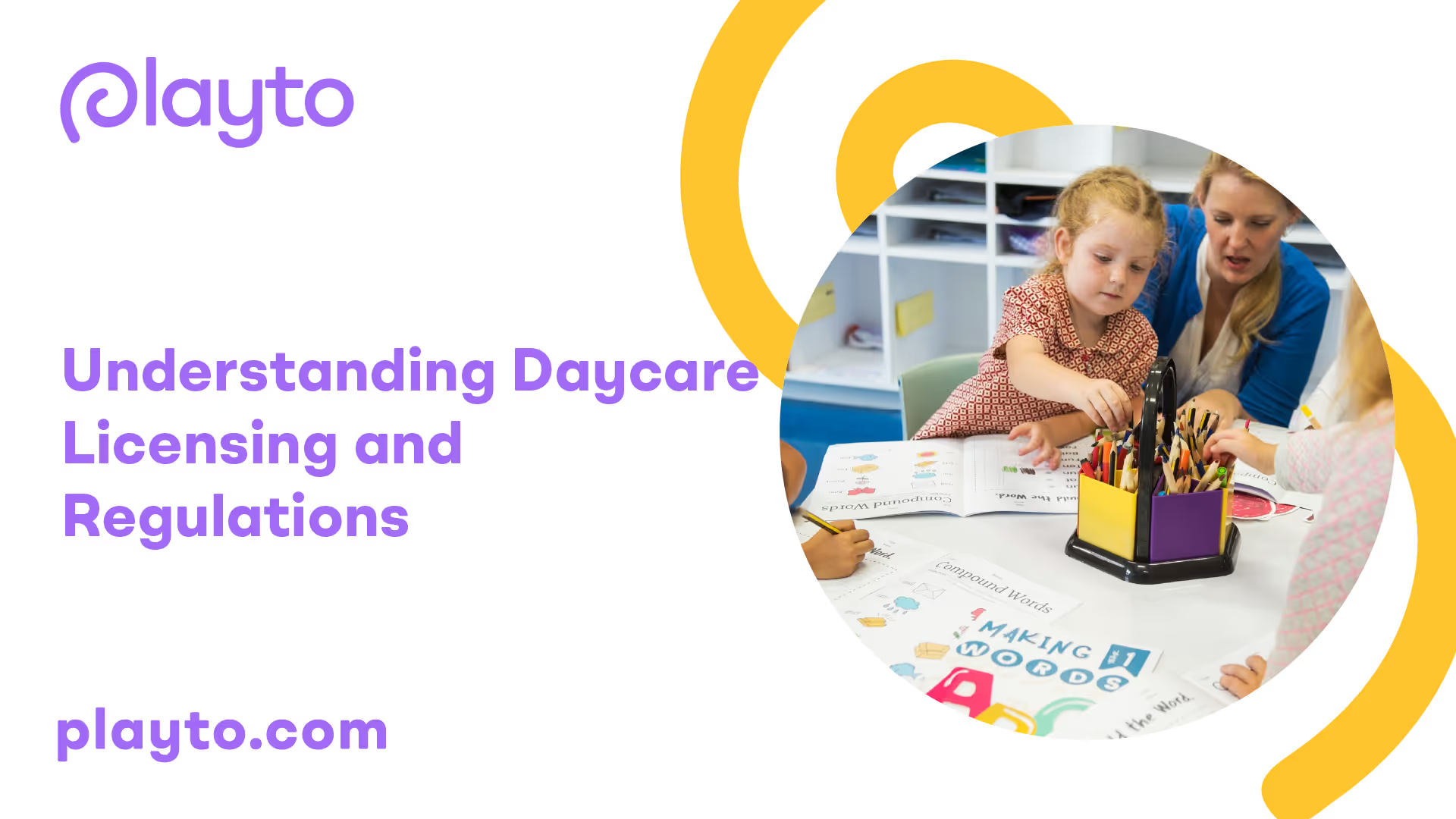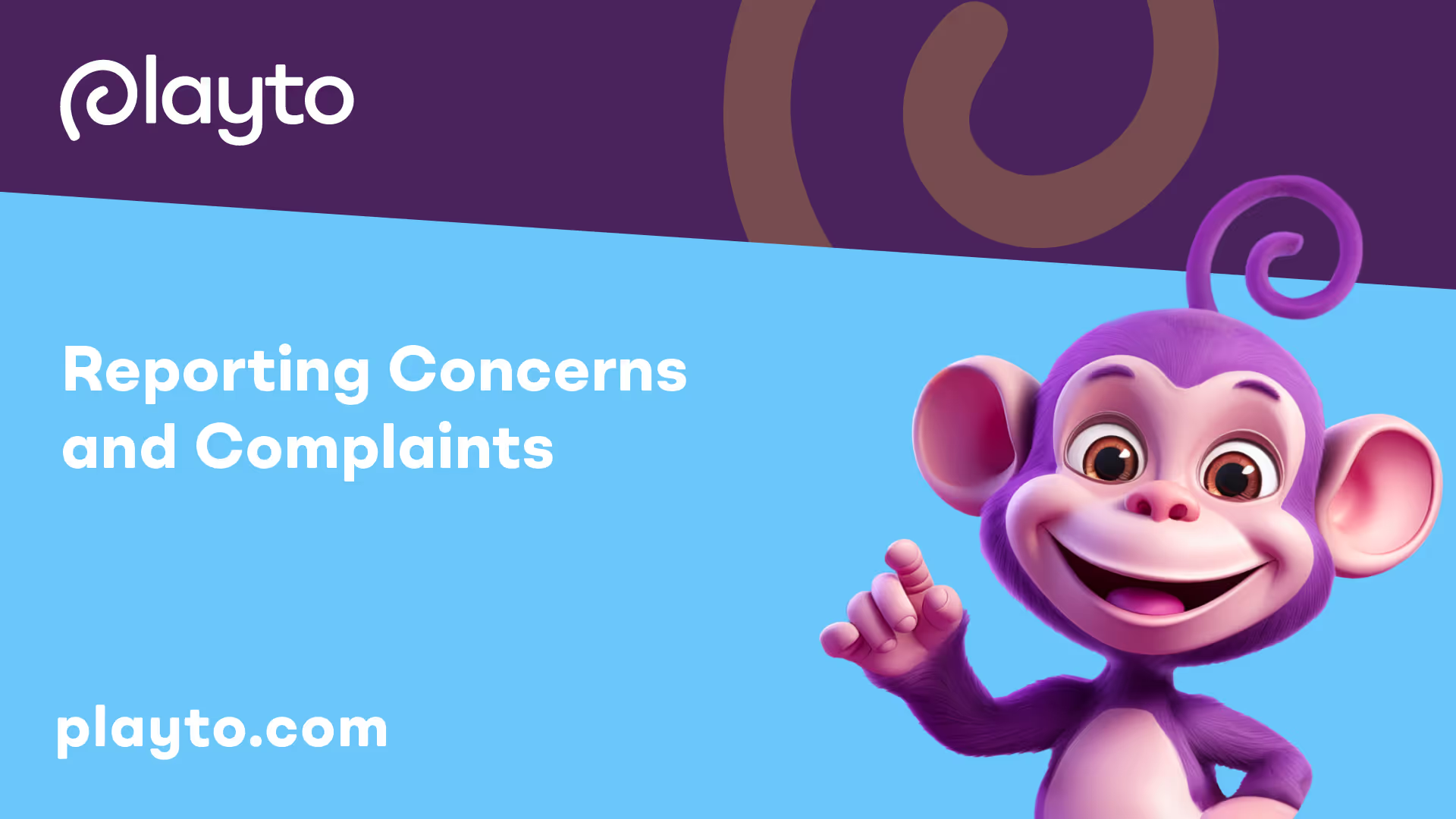Understanding Child Care Licensing
Ensuring the health and safety of children in daycare centers is of utmost importance. Child care licensing is a process where state and territorial governments set minimum health and safety requirements that child care programs must meet to legally operate, providing parents with peace of mind [1]. Let's explore the importance of child care licensing and the minimum requirements for licensed programs.

Importance of Child Care Licensing
Child care licensing plays a crucial role in safeguarding the well-being of children. By establishing standards and regulations, licensing helps to ensure that child care programs offer healthy and safe environments for children to grow and learn [1]. These regulations cover various aspects of child care, including health and safety practices, staff qualifications, and program quality.
Licensing also provides a level of accountability and oversight. Licensed child care programs are subject to regular inspections to ensure compliance with the established regulations. This oversight helps to identify and address any potential risks or hazards that may pose a threat to children's health and safety.
Moreover, licensing is often tied to federal funding through programs like the Child Care and Development Fund (CCDF). States must comply with federal regulations to receive CCDF funding, which assists low-income families in accessing child care services. This federal support further emphasizes the significance of child care licensing in maintaining high-quality child care standards.
Minimum Requirements for Licensed Programs
Licensed child care programs must meet specific minimum requirements to legally operate. These requirements ensure that child care programs provide healthy and safe environments for children to thrive. While specific regulations may vary by state, some common minimum requirements include:
- Health and Safety: Licensed programs must adhere to guidelines regarding sanitation, nutrition, and emergency preparedness. This includes proper food handling, safe storage of hazardous materials, regular cleaning and disinfection, and appropriate safety measures such as childproofing and emergency evacuation plans.
- Staff Qualifications: Licensed child care providers and their staff must meet minimum qualifications to provide appropriate care. These qualifications may include educational requirements, such as completing specific training courses or obtaining certifications in areas like first aid and CPR. Ongoing professional development and training are also essential for staying current with best practices in early childhood education and child development.
- Staff-to-Child Ratios: Licensed programs must maintain appropriate staff-to-child ratios to ensure that enough adults are present to safely supervise children and support their development and learning. These ratios help to ensure individualized attention and adequate supervision for each child based on their age and developmental needs.
- Program Quality: Licensed programs are encouraged to maintain high-quality standards beyond the minimum requirements. This includes offering age-appropriate activities, providing a stimulating learning environment, fostering positive relationships with families, and promoting children's social, emotional, and cognitive development.
By adhering to these minimum requirements, licensed child care programs create a safe, nurturing, and enriching environment for children to learn and grow.
Understanding child care licensing and the minimum requirements for licensed programs is essential for parents seeking reliable and quality child care options. Licensing ensures that child care programs meet established standards for health, safety, and program quality. By choosing a licensed program, parents can have confidence in their child's well-being and development while they are in a daycare setting.
Licensing Process and Compliance
Ensuring the safety and well-being of children in daycare centers requires a comprehensive licensing process and ongoing compliance with regulations. This section will explore the qualifications for providers and the importance of ongoing training and staffing ratios.

Qualifications for Providers
Licensed child care providers and their staff must meet minimum qualifications to provide appropriate care for children. These qualifications ensure that providers have the necessary knowledge and skills to create a nurturing and educational environment. The specific qualifications can vary by state, but they typically include:
- Minimum age requirements
- Educational requirements, such as a high school diploma or equivalent
- Background checks, including criminal history and child abuse clearances
- First aid and CPR certifications
- Training in child development and early childhood education
By setting these qualifications, licensing agencies aim to maintain a standard of quality and professionalism in daycare centers. Prospective providers must complete the required training and meet these qualifications before they can apply for licensure. To learn more about the licensing requirements in your state, visit the website of your state's licensing agency.
Ongoing Training and Staffing Ratios
To provide quality care and support children's development and learning, daycare centers must have well-trained staff members who stay updated on best practices and regulations. Ongoing training is essential for maintaining high standards of care and ensuring that providers have the knowledge and skills to meet children's changing needs.
Ongoing training may cover various topics, including child development, health and safety protocols, behavior management techniques, and early learning strategies. By participating in regular training, providers can enhance their expertise and stay informed about the latest research and recommendations in the field of early childhood education.
Additionally, staffing ratios play a crucial role in maintaining a safe and nurturing environment for children. These ratios specify the number of qualified adults required to supervise a certain number of children. The specific ratios can vary by state and the type of daycare center, such as center-based or home-based.
For example, in states like Florida, Georgia, and Delaware, a single child care provider can watch up to 25 school-age children at one time [3]. These ratios are designed to ensure that enough adults are present to safely supervise children and support their development and learning.
By adhering to appropriate staffing ratios and participating in ongoing training, daycare centers can provide quality care and maintain compliance with licensing regulations. These regulations are in place to protect the well-being of children and provide parents with peace of mind knowing that their children are in a safe and nurturing environment.
In the next section, we will explore the process of reporting concerns and complaints in daycare centers and the review process conducted by licensing staff.
Reporting Concerns and Complaints
Ensuring the safety and well-being of children in daycare centers is of utmost importance. If you have concerns about a licensed child care program operating unsafely, it is crucial to report them. By filing a complaint, you play a vital role in helping to maintain the standards and regulations that govern these facilities. Each state and territory has a dedicated phone line or online submission option for complaints, which will be reviewed by child care licensing staff [1].

Filing Complaints
To file a complaint, it is important to gather as much information as possible to support your concern. This might include details such as the name and location of the daycare center, the nature of the issue, and any evidence you may have, such as photographs or documentation. By providing accurate and specific information, you can assist licensing staff in their investigation.
When filing a complaint, it is essential to follow the designated process established by your state or territory. Contact the appropriate authority to inquire about the specific steps and documentation required for filing a complaint. Prompt reporting ensures that concerns are addressed in a timely manner, helping to protect the well-being of children in daycare centers.
Review Process by Licensing Staff
Once a complaint is filed, licensing staff will initiate a review process to investigate the concerns raised. The specific procedures and timelines for the review process may vary depending on the state or territory. Typically, licensing staff will conduct an on-site inspection of the daycare center in question to assess compliance with licensing regulations.
During the inspection, licensing staff will evaluate various aspects of the daycare center, including health and safety practices, staff qualifications and ratios, program activities, and the overall environment. The findings of the inspection will be documented and may be assigned a risk rating based on a risk matrix [4]. It's important to note that inspection reports should not be the sole basis for assessing the quality of a child care facility. Additional research and visiting the facility are recommended before making a decision about its quality and suitability.
Once the review process is complete, licensing staff will take appropriate action based on the findings. This can range from providing guidance and support to the daycare center to issuing sanctions or even revoking the license, depending on the severity of the violations.
Reporting concerns and filing complaints is an essential part of maintaining the safety and quality of daycare centers. By actively participating in the licensing process, you contribute to the well-being and protection of children in child care settings.
License-Exempt Programs
Some child care programs may be categorized as "license-exempt" and are not required to obtain a child care license to legally operate, based on specific criteria set by each state or territory. While these programs operate legally without a license, it's important to understand the criteria for exemption and the implications for parents and caregivers.
Criteria for Exemption
States and territories have established criteria that determine which child care programs can operate without a license. The specific criteria may vary, but common factors include:
- Duration: Some states exempt short-term or occasional child care programs that operate for a limited number of hours or days per week.
- Number of Children: Child care programs that only serve a small number of children may be exempt from licensing requirements. The threshold for exemption varies by state.
- Relationship: Programs that are operated by a relative or a caregiver who has a personal relationship with the children they care for may qualify for exemption.
- Location: In some cases, child care programs that operate within a certain type of facility, such as a religious organization or a school, may be exempt from licensing regulations.
It's important to note that while these programs may be exempt from licensing requirements, they are still subject to certain health, safety, and supervision standards to ensure the well-being of the children in their care.
Operating Legally Without a License
License-exempt child care programs are not required to meet the same licensing regulations as licensed programs. However, this does not mean that they operate without any oversight. States and territories typically have regulations in place to monitor and ensure the safety and well-being of children in these programs.
Parents and caregivers considering a license-exempt child care program should carefully assess the program's qualifications, staff qualifications, health and safety practices, and the overall quality of care provided. It is essential to conduct thorough research, ask questions, and visit the facility to ensure that the program meets the necessary standards for the well-being and development of their child.
While license-exempt programs may offer flexible options or meet specific needs, it's important to weigh the benefits and potential risks associated with choosing a program that operates without a license.
Understanding the licensing and exemption processes can help parents and caregivers make informed decisions about the child care options available to them. It's advisable to explore all available information and resources provided by the state or territory regulatory agencies to ensure the chosen child care program meets the necessary standards for their child's health, safety, and development.
State-Level Regulations
Child care businesses in the United States are regulated at the state level, with each state having its own set of regulations and licensing requirements. It is important for individuals looking to open a daycare center to understand the state-level regulations that apply to them. Let's explore the variations in licensing and the types of child care licenses commonly found.
Variations in Licensing
State-level regulations on daycare licensing can vary significantly from one state to another. States may have different licensing agencies responsible for overseeing and enforcing the regulations. These agencies ensure that child care providers meet the minimum standards and requirements necessary to operate a daycare center.
The specific regulations and licensing requirements can differ in areas such as staff-to-child ratios, health and safety standards, staff qualifications, training requirements, and facility inspections. It's crucial for daycare center operators to thoroughly understand and comply with the regulations set forth by their respective states to maintain a safe and high-quality environment for children.
Types of Child Care Licenses
States typically offer different types of child care licenses to accommodate various types of daycare centers. The two main categories are center-based licenses and home-based licenses.
- Center-Based Licenses: Center-based licenses are issued to daycare centers that operate in a dedicated facility outside of a personal residence. These centers often have larger capacities and may offer more comprehensive programs, such as preschool education. The regulations for center-based licenses may include specific requirements for staff qualifications, staff-to-child ratios, facility size, and safety measures.
- Home-Based Licenses: Home-based licenses are issued to daycare centers that operate within a personal residence. These centers offer care in a more intimate setting and typically have smaller group sizes. The regulations for home-based licenses may include guidelines for the maximum number of children allowed, health and safety standards for the residence, background checks for caregivers, and training requirements.
It is important for daycare center operators to understand the specific licensing requirements for their chosen type of daycare center. Compliance with these regulations ensures that the center operates legally and maintains a safe and nurturing environment for children.
By understanding the variations in licensing and the types of child care licenses available, daycare center operators can navigate the regulatory landscape and ensure that their centers meet the necessary standards. It's crucial to stay informed about any updates or changes in state-level regulations to maintain compliance and provide quality care for children.
Impact of Regulations on Quality
When it comes to daycare centers, regulations and licensing play a crucial role in ensuring the quality of care provided to children. These regulations not only focus on health and safety but also emphasize the provision of high-quality care services. Let's explore the impact of these regulations on both aspects.
Ensuring Health and Safety
Child care licensing and regulations are designed to establish minimum health and safety requirements that daycare programs must meet to legally operate. The primary goal is to create healthy and safe environments for children to learn, grow, and thrive. These regulations cover various aspects, including facility safety, hygiene practices, emergency procedures, and health requirements for staff and children.
By enforcing these regulations, daycare centers are able to ensure that proper measures are in place to prevent accidents and mitigate potential hazards. For example, regulations may specify guidelines for childproofing the premises, maintaining appropriate staff-to-child ratios, and conducting background checks on employees. These measures help create a safe and secure environment where children can explore, learn, and interact with others.
Providing Quality Care Services
In addition to health and safety, daycare regulations also aim to promote the provision of high-quality care services. These regulations often include requirements related to staff qualifications and ongoing training. By setting standards for staff qualifications, such as educational background and certifications, regulations ensure that daycare centers have knowledgeable and skilled professionals caring for children.
Moreover, regulations often dictate staff-to-child ratios, which determine the number of children a caregiver can effectively supervise. This helps maintain an appropriate balance between individual attention and group interaction, fostering a positive and nurturing environment for children's development.
By adhering to these regulations, daycare centers are able to provide quality care services that promote children's cognitive, social, and emotional development. Staff members who receive ongoing training are better equipped to support children's learning and address their unique needs. This, in turn, contributes to the overall quality of the daycare experience.
It's worth noting that the specific licensing and regulatory requirements can vary between states and countries. Each jurisdiction may have its own set of guidelines and standards. However, the common goal across these regulations is to ensure the well-being and positive development of children in daycare facilities.
Understanding the impact of regulations on both health and safety and the provision of quality care services can help parents make informed decisions when choosing a daycare center for their child. By selecting a licensed and regulated facility, parents can have peace of mind knowing that their child will be in a safe and nurturing environment that supports their growth and development. For more information on daycare centers and related topics, check out our articles on what is a daycare center?, benefits of daycare for child development, and how to choose the right daycare for your child.
